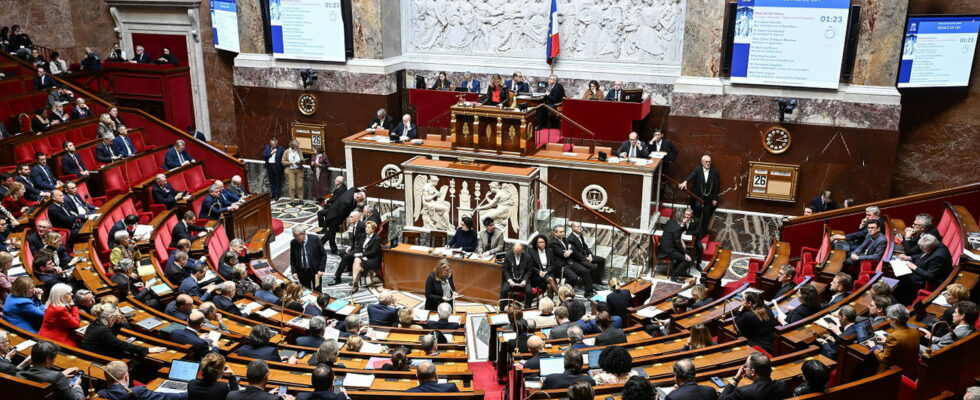The National Assembly largely opposed the Mercosur agreement on Tuesday evening. But will the vote of MEPs have a real impact on the future agreement with the European Union?
The National Assembly said no to the Mercosur agreement. On the occasion of a purely consultative vote organized on Tuesday, November 26 in the evening at the Palais Bourbon, no less than 484 deputies voted for the government’s declaration “against the signing of this agreement as the European Commission envisages it”, and only 70 MPs voted against.
This discussion between parliamentarians, organized under article 50-1 of the Constitution, allows the government, on its own initiative or at the request of a parliamentary group, to make a declaration on a subject determined in advance. The deputies are then brought to debate, and in certain cases – like this one – to vote. At the origin of this proposal: the Minister responsible for Relations with Parliament, Nathalie Delattre.
This Tuesday’s debate, however, was far from heating up dissension. Indeed, the angry farmers received broad support from different parties, whether right or left. The discussions therefore, without much surprise, were against the signing of the treaty. Despite everything, due to its consultative nature, the vote has no impact on government decisions.
Building a stronger case
This detail gives rise to evasive responses from the executive. For example, LR MP Julien Dive questioned the Minister of Agriculture, Annie Genevard, on the subject, during the government question session on November 19: “Are you ready to respect this vote and to engage in a real standoff with the European Commission to defend our food sovereignty? Stuck, the minister preferred to avoid the question: “[Ce débat] will be fruitful and you can believe that we will be very, very mobilized on this issue.”
Despite everything, the massive vote of deputies against the EU-Mercosur agreement will allow France to build a more solid file ahead of discussions with the European Commission, whose negotiations should take place in the coming months. There has already been a precedent, in 2019, after the vote on a resolution by the National Assembly against the agreement with Mercosur. At that time, Paris had succeeded in influencing the ongoing negotiations, without however succeeding in stopping them.
Within Europe, the issue is far from being such a sensitive subject. For our neighbors, this debate organized by the government is more a matter of national policy. Some countries still join France in its disagreement, such as Poland and Italy. Austria and Ireland could also join the counter camp, but they still have reservations.
To defeat the ratification of the agreement, France must bring together four European countries with sufficiently high population density to prevent its supporters from reaching 65% of the population. If this is not the case, the qualified majority will adopt the text which will pass into the hands of the European deputies. With their approval, the agreement will be generalized to the entire EU.
